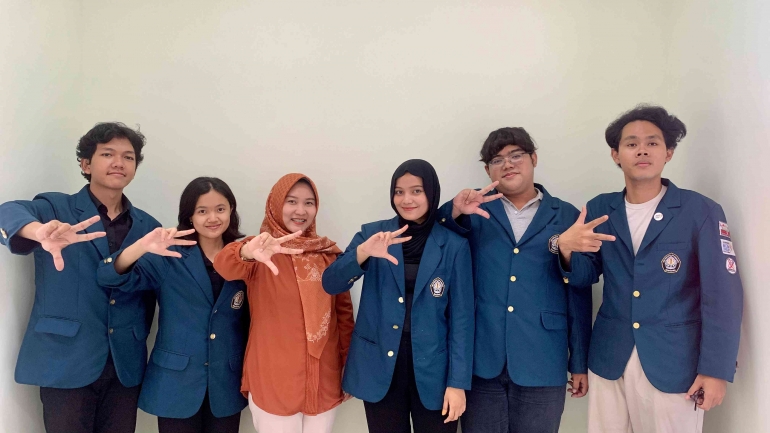Student innovations can actually be a solution to problems faced by society and continue to be a driving force in efforts to improve environmental sustainability. As done by students of the Industrial Chemical Engineering Technology Study Program (TRKI) Vocational Undip who succeeded in obtaining funding for the 2024 Student Creativity Program (PKM). The competitive student program funded by the Directorate General of Higher Education is in the field of Science and Technology Application (PKM-PI) with a team consisting of 5 students. The PKM-PI team is chaired by Salsa Kamilia and 4 student members, namely Alam Surya Negara, Amsal Jobit Mangaraja Sinaga, Mohamad Rasyid Bahaudin, and Yessy Nathania and accompanied by Rizka Amalia, ST. MT as a supervisor. The theme raised in PKM-PI is “Implementation of Tofu Waste Liquid Fertilizer Fermenter (FERMENTA) Based on ESP32 Microcontroller at the Cikal Tofu Production House. Ma.Ede as an Effort to Process Waste”.
Salsa Kamilia, who is usually called Salsa, said that the initial idea for the PKM Team came about when there was a food technology course assignment in the form of a visit to a small-scale industry/production house that processes food ingredients that require a fermentation process. From there, Salsa Kamilia remembered one of the tofu production houses that had been visited, namely the Cikal.Ma.Ede Tofu Production House located on Jl. Klipang Raya Golf, Plamongan Sari, Pedurungan District, Semarang City. Although the tofu production house is very prospective in its production, it turns out to produce waste in the form of tofu dregs and liquid waste. Even the waste processing process has not been managed properly, causing an unpleasant odor in the work environment. This causes an uncomfortable environment for workers and causes environmental pollution around the waste disposal site, explained Alam, Alam Surya Negara’s nickname.
Amsal also added that the consequences of the disposal of waste that does not meet wastewater quality standards, cause an unhealthy environment. Reviewing the existing case, our team thought of overcoming the problems related to waste processing from tofu production so that it can be processed into liquid organic fertilizer through the development of environmentally friendly science and technology. After discussing, an innovative idea emerged in the form of fermentor technology called “fermenta” to process tofu waste into liquid organic fertilizer. The new fermentor that will be developed is a modification with several components such as an agitator to speed up the fermentation process and ensure even distribution of microorganisms and is also equipped with a pH sensor and a ds1820 temperature sensor, explained Rasyid.
Yessy said that the addition of this sensor is intended to observe the temperature during the fermentation process so that it remains stable and according to needs. This monitoring can be done remotely, namely through the “Blynk” application which can be downloaded on a cellphone and can be monitored anytime and anywhere with the aim of knowing what temperature and pH occur in the fermentation process so that you can know when the fermentation process is complete. The application of science and technology to industrial partners, through digitalization, can provide benefits in the form of solutions for processing tofu waste which is processed into liquid organic fertilizer. This waste processing can improve environmental sustainability around the Sumedang Cikal.Ma.Ede Tofu Production house, because a clean and comfortable environment makes workers feel at home doing activities. In addition, the results of this liquid organic fertilizer can also increase profits for partners, thereby increasing economic value because this liquid organic fertilizer can be sold again and can be used by the community such as farmers and others, concluded Salsa.


Recent Comments